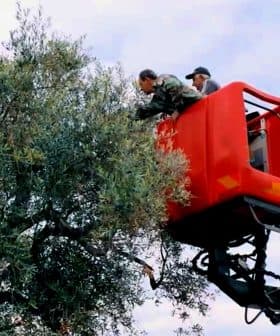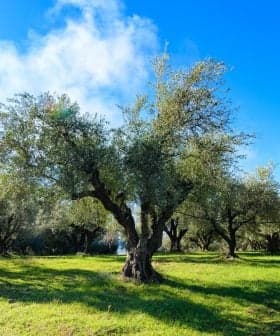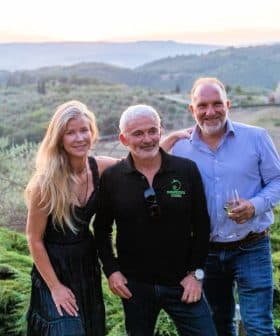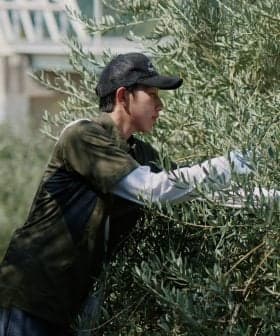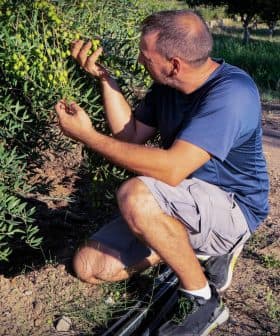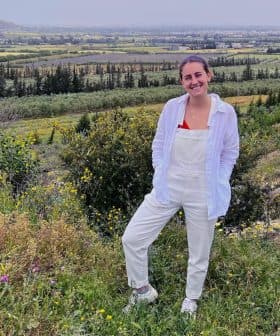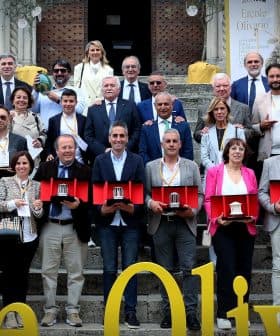Another Record Year Suggests a Trend in Brazil, Producers Say
Fourteen producers from Brazil’s largest producing regions combined to earn a record-high tally at the 2022 World Olive Oil Competition.
 Photo: Azeite Pedregais
Photo: Azeite Pedregais Brazilian producers from various states, including Rio Grande do Sol and Minas Gerais, achieved record success at the 2022 NYIOOC World Olive Oil Competition, winning a total of 30 awards. Producers attribute their success to factors such as increasing knowledge of grove management, expertise among millers, and a focus on high-quality olives and early harvesting techniques. The awards have not only boosted the reputation of Brazilian olive oils but also encouraged producers to continue improving quality and expanding production in the growing sector.
Part of our continuing special coverage of the 2022 NYIOOC World Olive Oil Competition.
For the second consecutive year, Brazilian producers enjoyed a record year at the NYIOOC World Olive Oil Competition.
Nine producers from the southeastern state of Rio Grande do Sol, four from the mountainous south-central state of Minas Gerais and one from neighboring São Paulo combined to win 30 awards at the world’s largest olive oil quality competition.
Olive oil production in Brazil is something new and winning these awards shows our potential to produce quality olive oil.
The 14 producers set records for the number of Gold Awards (26), total awards and entries (35) at the world competition.
“The amount of Brazilians sending their oils to the contest just shows how important it is as a marketing tool for customers,” Rafael Marchetti, the chief executive of Prosperato, which earned four Gold Awards, told Olive Oil Times. “They strongly believe in these results as a sign of the real quality of the olive oil.”
See Also:The Best Olive Oils from BrazilSandro Marques, the author of a comprehensive guidebook to Brazilian olive oils, cited three reasons to explain the country’s accelerating success in the World Competition.
He believes an increasing knowledge of grove management, a higher level of expertise among millers and more professional olive growers (as opposed to farmers who grow olives as a side crop) have fueled Brazil’s rise in New York.
Indeed, since Prosperato won the country’s first NYIOOC accolade in 2017, the number of awards earned by Brazilian producers has increased each year, with the exception of 2020, when a massive drought in Rio Grande do Sul severely impacted the harvest.
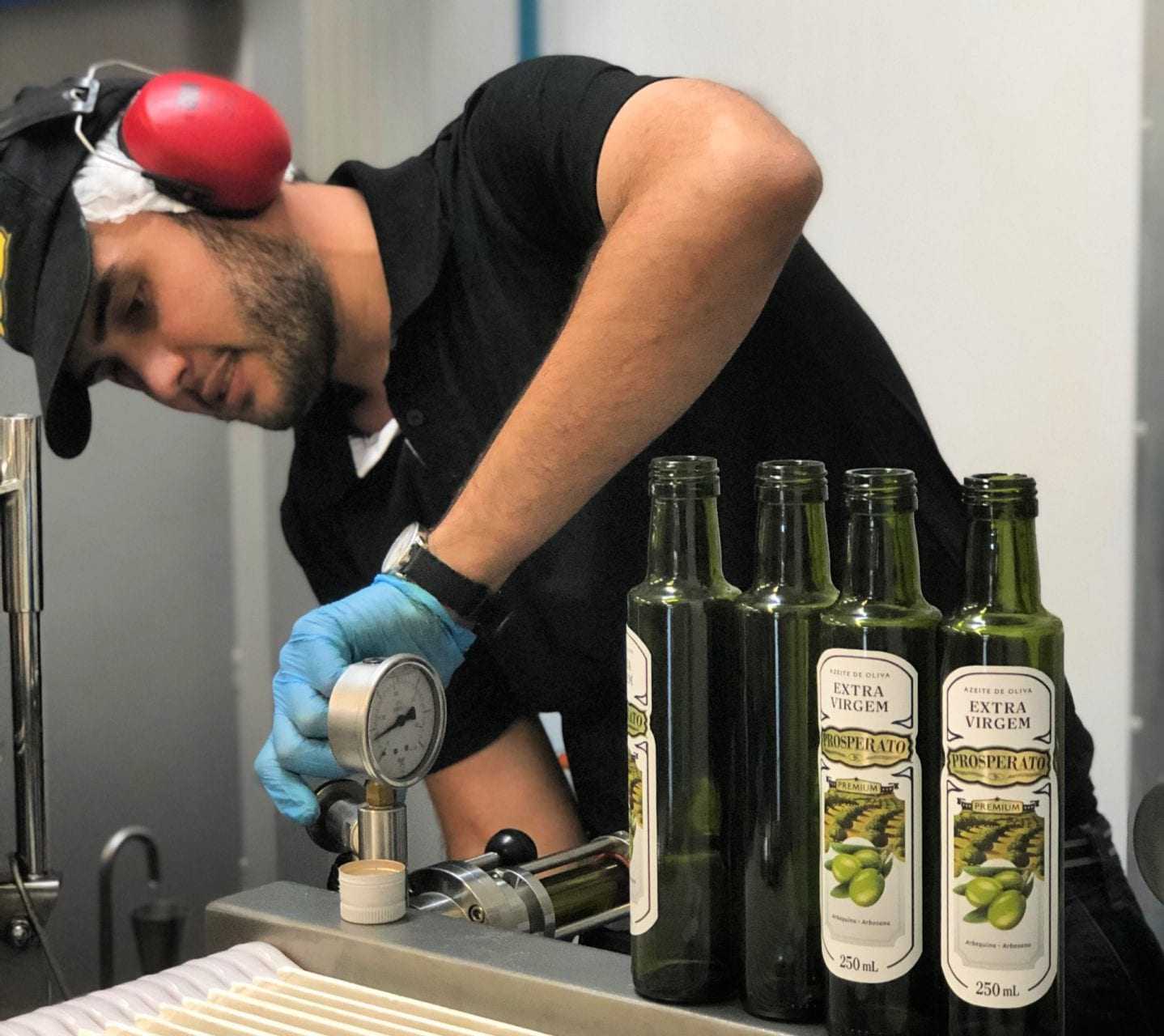
Rafael Marchetti
The driving force behind Brazil’s largest olive oil producer, Marchetti, attributed Prosperato’s sustained success at the NYIOOC to his decade of experience producing olive oil and consistently undertaking an early harvest.
“If we didn’t do it this way, we couldn’t compete with the olive oils at the supermarkets because they are much cheaper, and we know that our products are much more expensive,” he said. “So we had to do it differently, especially because our production is so small and we couldn’t compete in quantity.”
As a result, quality is everything for Marchetti, who pushes his employees to harvest as quickly as possible while only selecting the best olives to transform.
“I am the miller, so I always try to push people in our harvest to get the best fruit possible, as fast as they can,” Marchetti added.
Situated almost evenly between Prosperato’s two olive groves, the producers behind Azeite Pedregais celebrated winning two Gold Awards in their first commercial harvest.
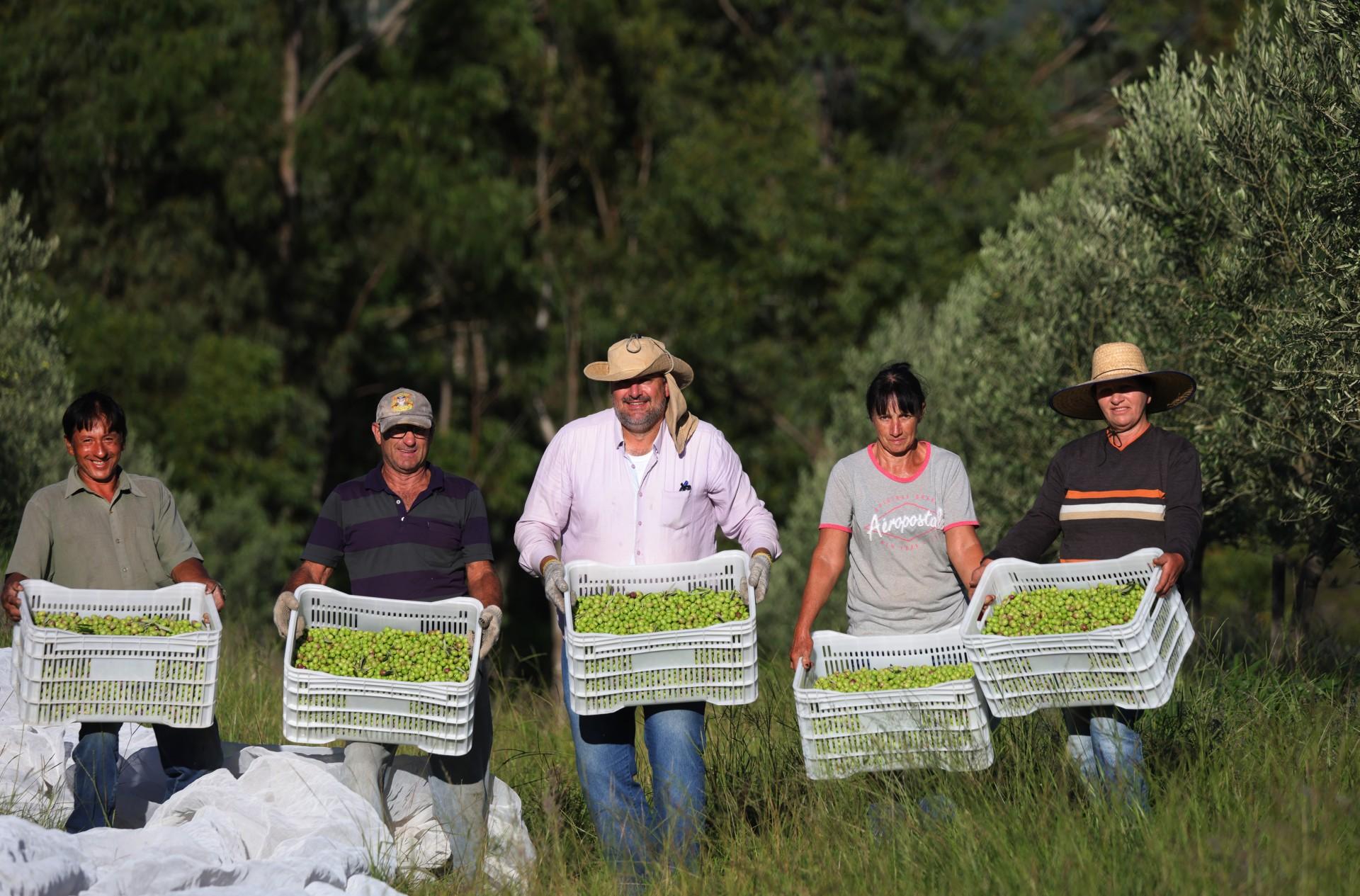
Photo: Azeite Pedregais
“Despite the drought that we had in our state and region, we saw that the quality of the fruit was very good,” co-owner Flavo Fernandes told Olive Oil Times. “On the first day of harvesting the Arbequina and extracting it, we tasted very distinct olive oil, which was confirmed in the following weeks with the Picual.”
After Fernandes and his team tasted the two monovarietals, they knew they had something special and wanted to know how they compared to the world’s best.
“It seemed a bit illogical to some people, and we were told that we didn’t stand a chance as we were just starting in this world of extra virgin olive oil,” he said. “But to the joy of our family, we won two Gold Awards: a joy and recognition of the work.”
Fernandes attributed his success to focusing on growing and harvesting high-quality olives at the precise right moment to transform into oil instead of producing large quantities of the fruit.
“The fruits were picked at their best time to balance the fruitiness, spiciness and bitterness,” he said. “We waited for this moment for a few weeks – patience is also part of olive oil production.”
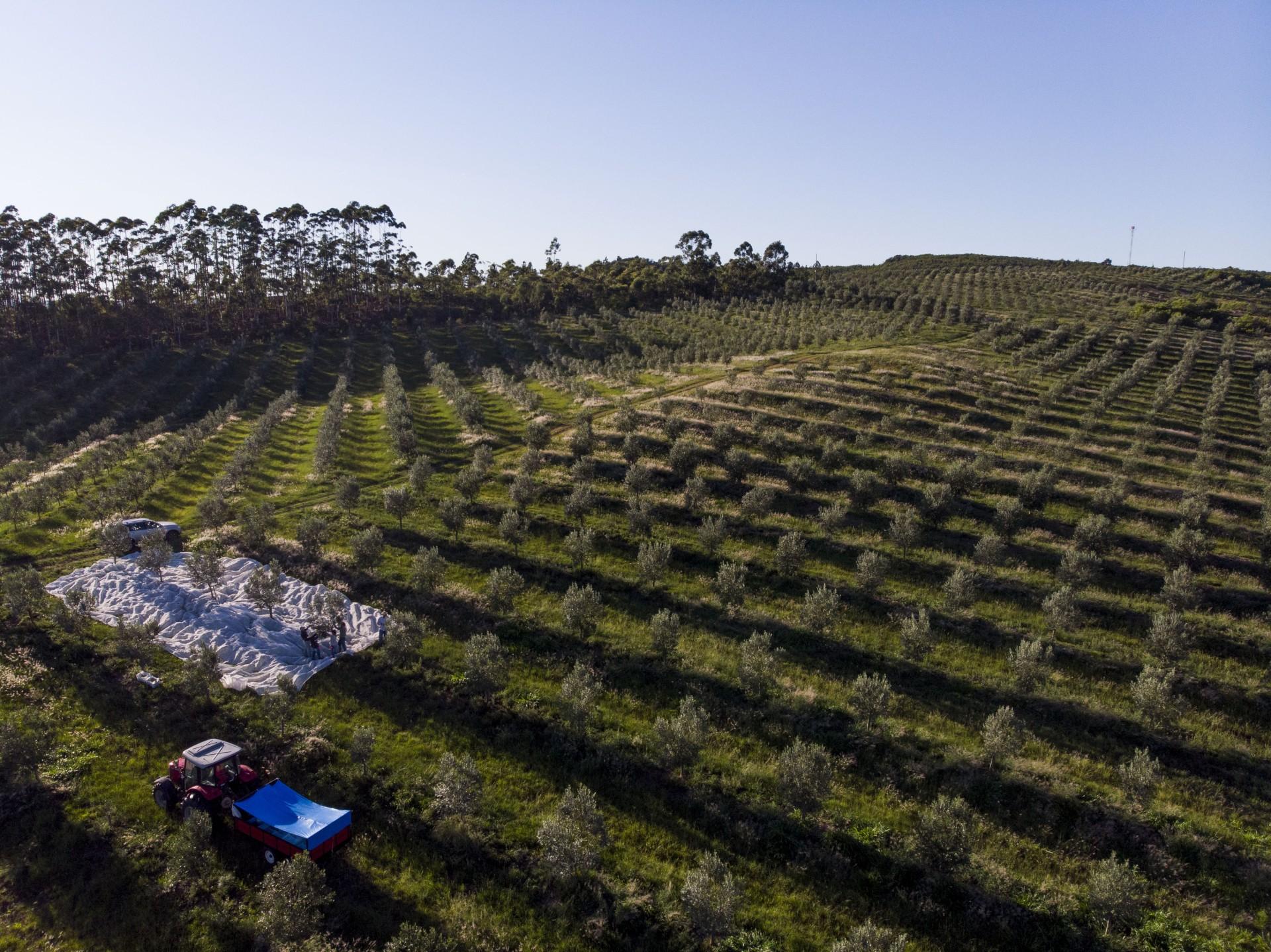
Photo: Azeite Pedregais
Despite this initial success, Fernandes worries that Rio Grande do Sol is becoming increasingly dry and irrigating his olive groves will be necessary.
“We had a prolonged drought, which started in the spring of 2021, around September, and lasted until early March,” he said. “We had to irrigate the plantation, and we suffered from the risk of loss of production due to prolonged excess heat.”
“Longer periods of drought are routine, and we need to prepare better for that,” Fernandes added. “Accumulating water from the rainy season is the way to go. Irrigation should also be part of our routine, as we have seen in the last two years.”
With groves in Rio Grande do Sol and 1,100 kilometers northeast in Santo Antônio do Pinhal, São Paulo, Bia Pereira, the co-owner of Azeite Sabia, agreed that climate change was also a significant challenge for her company.
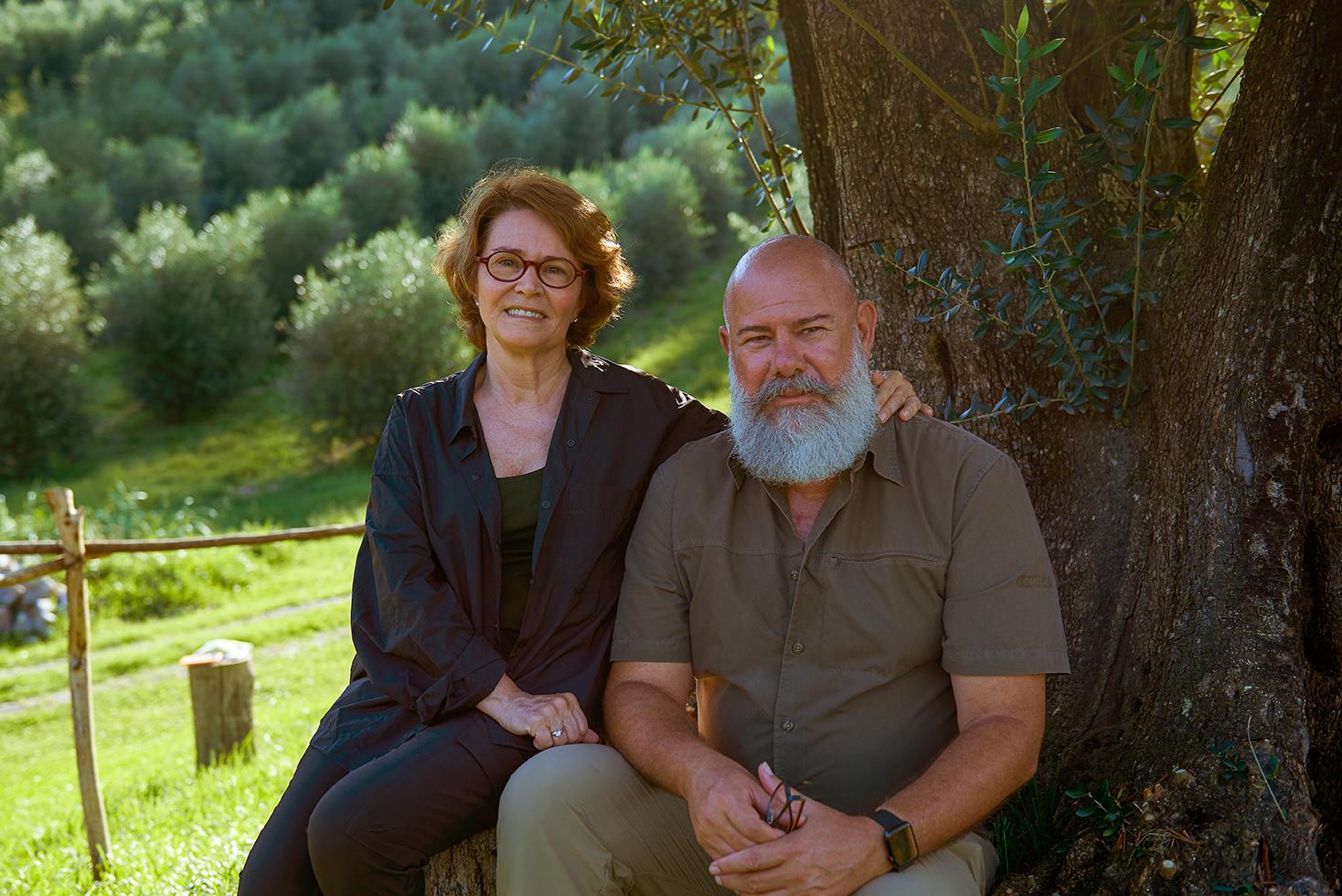
Bia Pereira and Bob Vieira da Costa
“It’s a big challenge. During the year, we face many climate problems: wind, rain and the dry season,” she told Olive Oil Times. “The difficulties [in both] are at different but similar levels. In São Paulo, we have humidity. In the south, the dry season is good for the olives but also comes with storms.”
Despite these challenges, Azeite Sabia earned a Gold Award for a medium blend at the 2022 NYIOOC. Perreira said the care they take during each harvest and how they mill the olives is part of what sets them apart from others.
“During the harvest, the challenge is to be quick and not let the olives ripen too much,” she said. “Then, we use all our knowledge in the mill to extract a fruity oil with balanced bitterness and spiciness.”
Perreira added that winning awards at two consecutive World Competitions assures consumers that their product is on par with the best.
“We are very proud of our oil. The prize is a confirmation that we are making an excellent product,” she said. “Consumers are very impressed with prizes, and we sell more.”
Situated just over the border of São Paulo, in Minas Gerais, the producers behind Origen Trevisan celebrated their first NYIOOC success in the first year of production.
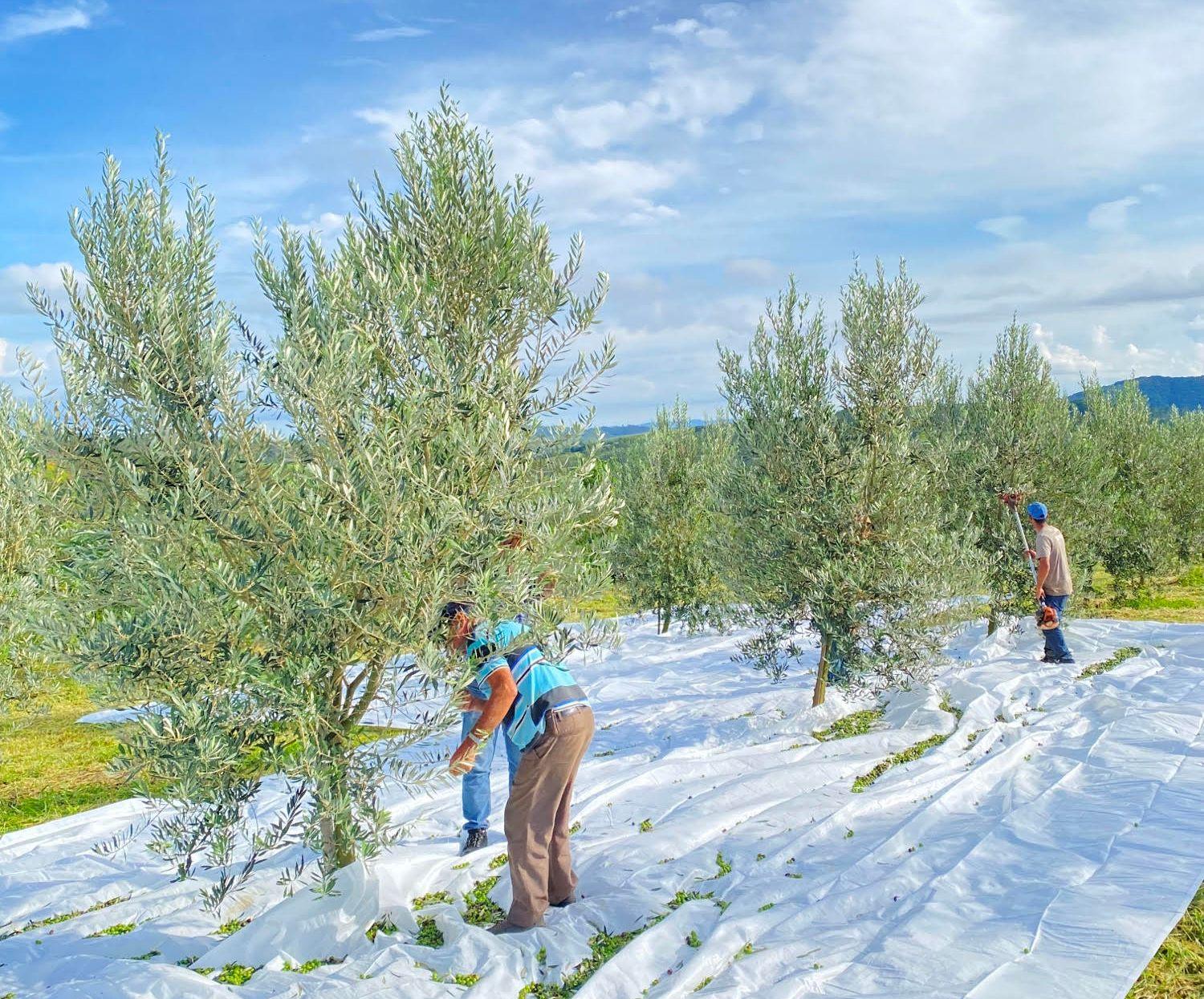
Photo: Origen Trevisan
“As it was our first production, we had the challenge of entering the market. Winning the award opens new doors for our brand,” owner Paula Trevisan told Olive Oil Times. “We have gained special attention for our olive oil and the trust of our consumer market.”
The company earned a Gold Award for a medium blend at the competition.
Trevisan attributed her success to the altitude and volcanic soils of the Serra da Mantiqueira and her team’s careful attention to detail in the groves and milling process.
“This was our first harvest of olives since planting, so the whole process was new. In addition, it was the first extraction of our oil,” she said.
“One of the challenges we faced was to be able to extract on the same day of harvest, so we had to have good logistics so that the harvest up to that day could be taken in the shortest time possible to the farm where the extraction was carried out,” Trevisan added.
She concluded that winning these awards will continue to spur the fledgling Brazilian olive oil production sector to increase the quantity and improve quality.
“Olive oil production in Brazil is something new and winning these awards shows our potential to produce quality olive oil,” Trevisan said. “This is an incentive for producers to increase production and new ones to enter the olive growing business.”
Share this article


